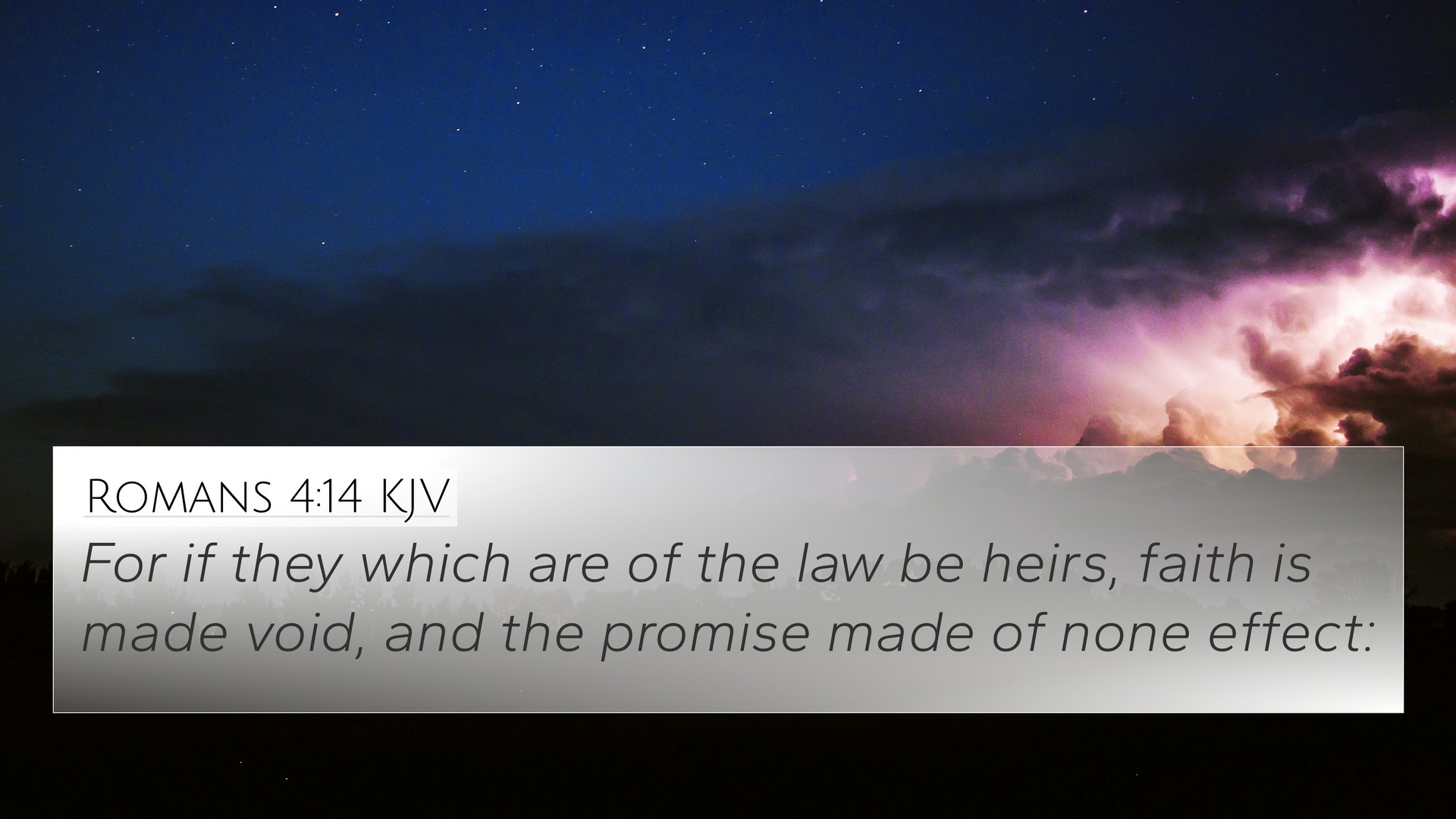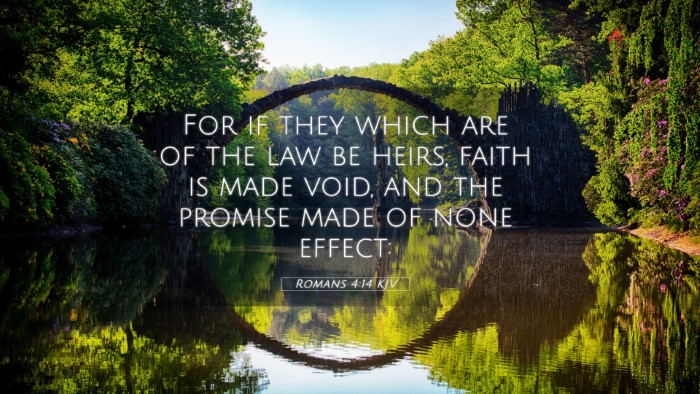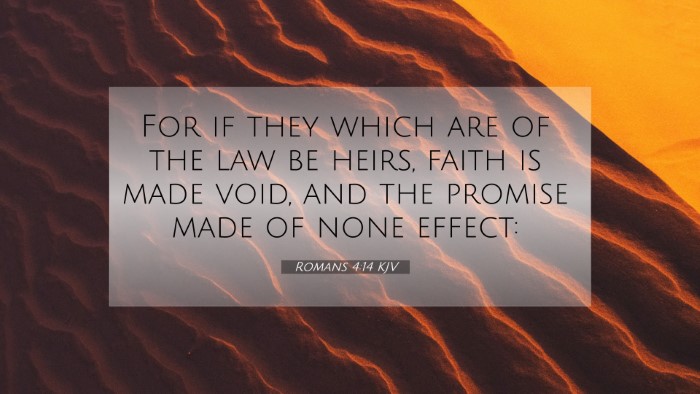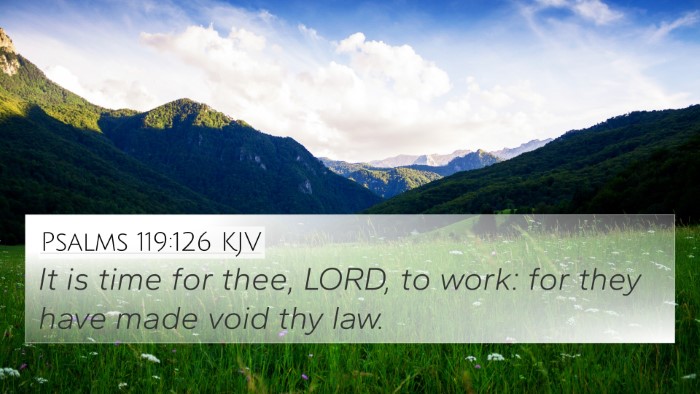Old Testament
Genesis Exodus Leviticus Numbers Deuteronomy Joshua Judges Ruth 1 Samuel 2 Samuel 1 Kings 2 Kings 1 Chronicles 2 Chronicles Ezra Nehemiah Esther Job Psalms Proverbs Ecclesiastes Song of Solomon Isaiah Jeremiah Lamentations Ezekiel Daniel Hosea Joel Amos Obadiah Jonah Micah Nahum Habakkuk Zephaniah Haggai Zechariah MalachiRomans 4:14 Similar Verses
Romans 4:14 Cross References
For if they which are of the law be heirs, faith is made void, and the promise made of none effect:
Uncover the Rich Themes and Topics of This Bible Verse
Listed below are the Bible themes associated with Romans 4:14. We invite you to explore each theme to gain deeper insights into the Scriptures.
Romans 4:14 Cross Reference Verses
This section features a detailed cross-reference designed to enrich your understanding of the Scriptures. Below, you will find carefully selected verses that echo the themes and teachings related to Romans 4:14 KJV. Click on any image to explore detailed analyses of related Bible verses and uncover deeper theological insights.
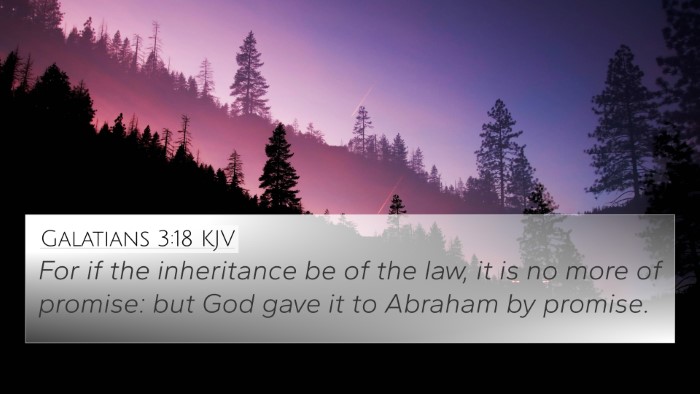
Galatians 3:18 (KJV) »
For if the inheritance be of the law, it is no more of promise: but God gave it to Abraham by promise.

Numbers 30:12 (KJV) »
But if her husband hath utterly made them void on the day he heard them; then whatsoever proceeded out of her lips concerning her vows, or concerning the bond of her soul, shall not stand: her husband hath made them void; and the LORD shall forgive her.
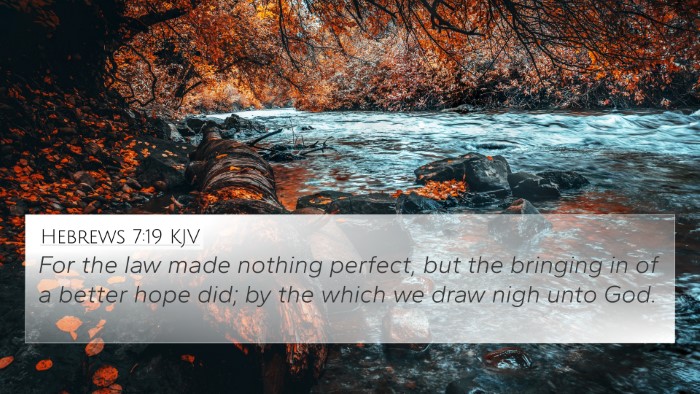
Hebrews 7:19 (KJV) »
For the law made nothing perfect, but the bringing in of a better hope did; by the which we draw nigh unto God.
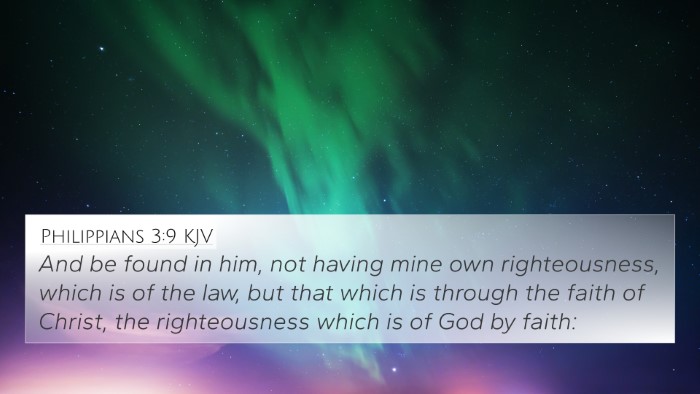
Philippians 3:9 (KJV) »
And be found in him, not having mine own righteousness, which is of the law, but that which is through the faith of Christ, the righteousness which is of God by faith:
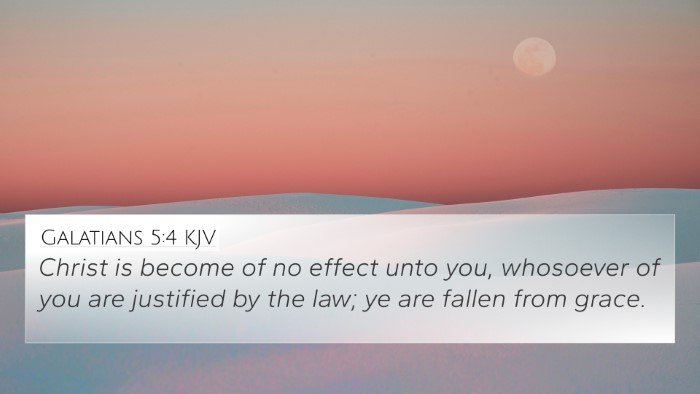
Galatians 5:4 (KJV) »
Christ is become of no effect unto you, whosoever of you are justified by the law; ye are fallen from grace.
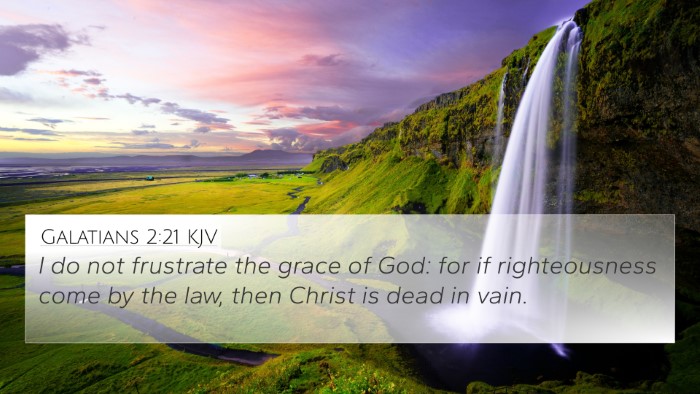
Galatians 2:21 (KJV) »
I do not frustrate the grace of God: for if righteousness come by the law, then Christ is dead in vain.
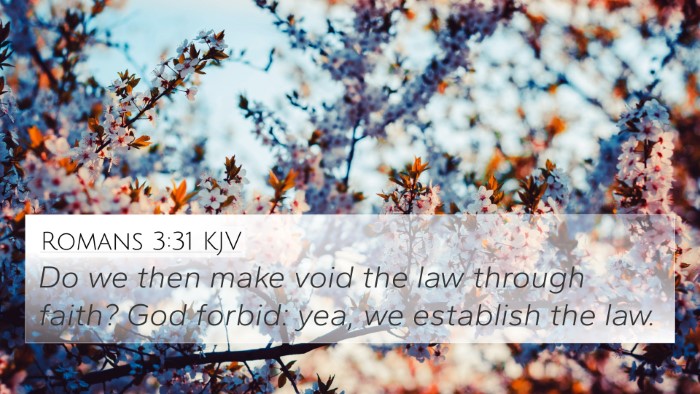
Romans 3:31 (KJV) »
Do we then make void the law through faith? God forbid: yea, we establish the law.
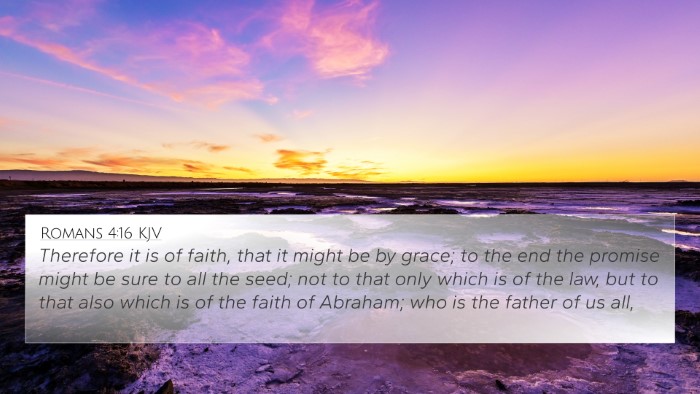
Romans 4:16 (KJV) »
Therefore it is of faith, that it might be by grace; to the end the promise might be sure to all the seed; not to that only which is of the law, but to that also which is of the faith of Abraham; who is the father of us all,

Jeremiah 19:7 (KJV) »
And I will make void the counsel of Judah and Jerusalem in this place; and I will cause them to fall by the sword before their enemies, and by the hands of them that seek their lives: and their carcases will I give to be meat for the fowls of the heaven, and for the beasts of the earth.

Isaiah 55:11 (KJV) »
So shall my word be that goeth forth out of my mouth: it shall not return unto me void, but it shall accomplish that which I please, and it shall prosper in the thing whereto I sent it.
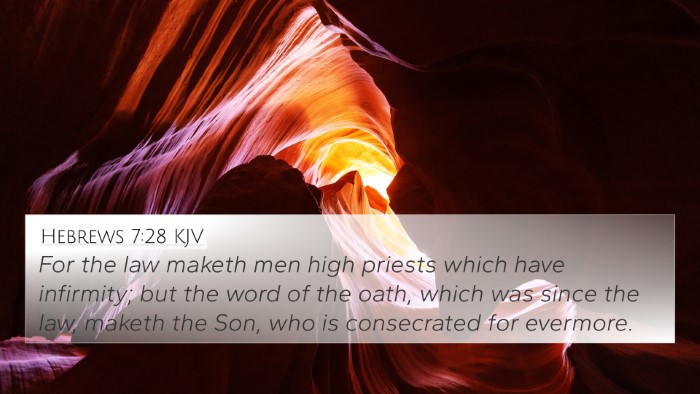
Hebrews 7:28 (KJV) »
For the law maketh men high priests which have infirmity; but the word of the oath, which was since the law, maketh the Son, who is consecrated for evermore.
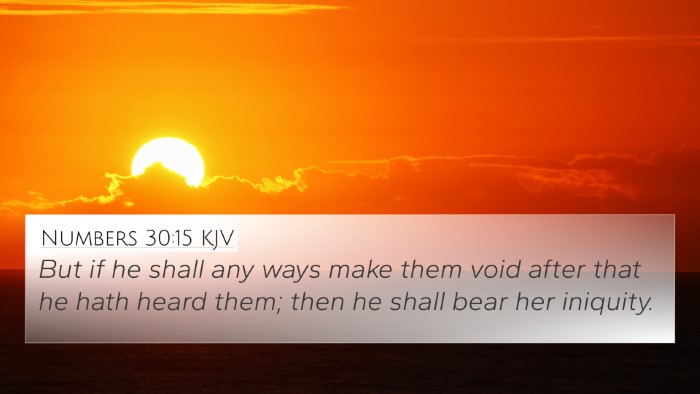
Numbers 30:15 (KJV) »
But if he shall any ways make them void after that he hath heard them; then he shall bear her iniquity.
Romans 4:14 Verse Analysis and Similar Verses
Understanding Romans 4:14
Romans 4:14 states: "For if those who are of the law are heirs, faith is made void and the promise made of no effect." This verse emphasizes the relationship between faith and the Law, central to Paul's argument regarding justification. Below is a summary of insights from public domain commentaries by Matthew Henry, Albert Barnes, and Adam Clarke.
Verse Meaning Summary
The essence of Romans 4:14 addresses the conflict between adherence to the Law and the principle of faith that Paul argues is foundational to salvation. Here are key insights:
- Matthew Henry: Henry articulates that Paul is emphasizing the insufficiency of the Law for justification. Those who rely solely on their adherence to the Law cannot be heirs of the promise, as true inheritance before God comes through faith - not through works.
- Albert Barnes: Barnes elaborates that if righteousness could be obtained by the Law, then faith would not be necessary. The promise of God can only be claimed through faith, which makes the promise alive and efficient, contrasting the 'dead work' of the Law.
- Adam Clarke: Clarke notes that the promise here refers to justification and eternal life, which can only be accessed through faith. He emphasizes the futility of relying on the Law for salvation, asserting that faith is essential in realizing the divine promise.
Theological Implications
This verse serves as a critical transitional point in Paul's epistle, directing attention to the heart of the Gospel. The implications include:
- The juxtaposition of faith and works highlights the gospel-centric nature of salvation. It reveals human limitations and God's grace.
- Paul asserts that the promise of God is not contingent upon human effort but is accessible through faith.
- This creates a pathway for Gentiles who do not adhere to the Law, establishing the overarching theme of inclusivity in the New Covenant.
Related Bible Cross-References
Romans 4:14 can be cross-referenced with several key passages that illuminate the theme of faith versus works in the context of salvation:
- Romans 3:28: "For we hold that one is justified by faith apart from works of the law."
- Galatians 2:16: "Yet we know that a person is not justified by works of the law but through faith in Jesus Christ…”
- Ephesians 2:8-9: "For by grace you have been saved through faith, and that not of yourselves; it is the gift of God…”
- Hebrews 11:6: "But without faith it is impossible to please Him, for he who comes to God must believe that He is…”
- Philippians 3:9: "And be found in Him, not having a righteousness of my own that comes from the law, but that which comes through faith in Christ…”
- Romans 10:4: "For Christ is the end of the law for righteousness to everyone who believes."
- 2 Corinthians 5:7: "For we walk by faith, not by sight."
- James 2:26: "For as the body without the spirit is dead, so faith without works is dead also."
- Acts 15:11: "But we believe that through the grace of the Lord Jesus Christ we shall be saved in the same manner as they."
- Matthew 5:20: "For I say to you, that unless your righteousness exceeds the righteousness of the scribes and Pharisees, you will by no means enter the kingdom of heaven."
Conclusion
Romans 4:14 stands as a significant declaration within the New Testament discourse, highlighting the necessity of faith over the Law for salvation. The commentaries by esteemed theologians such as Henry, Barnes, and Clarke provide a deeper understanding of its relevance, while the cross-references underscore the interconnectedness of biblical truths. This not only enhances the interpretation of Romans 4:14 but also enriches one’s overall knowledge of scriptural themes.
